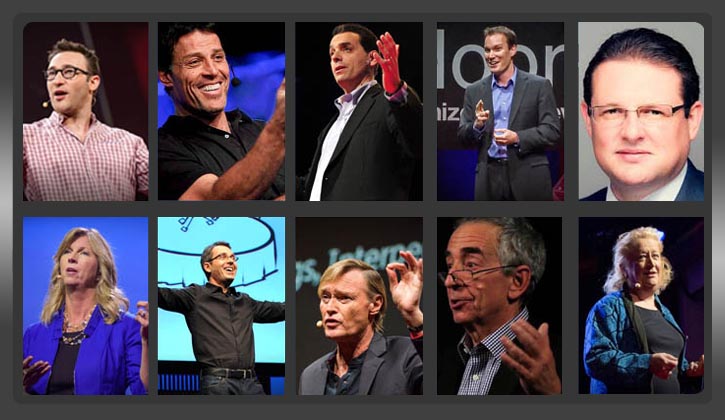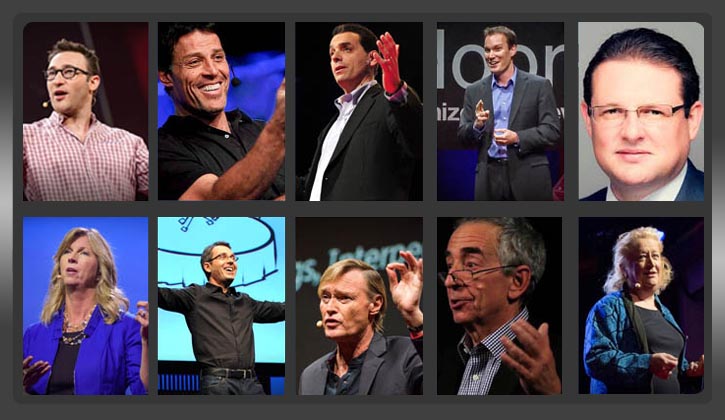
As individuals, we all are constantly striving for new ways of seeking knowledge and putting it to use for professional and personal success. While some believe the best source for this lies in education, others believe they can learn best through experiences. Nevertheless, a constant thirst for knowledge as well as the development of ideas and perceptions is what is necessary for growth and development in all walks of life. For entrepreneurs, both budding as well as experienced, the common thought process will invariably lead you to MBA classrooms. Here, structured course materials and lectures will promise the potential to turn you into the next generation of business leaders. But what if you were told life experiences were better teachers than classroom lectures and grade sheets?
Unless you are a person, who has shunned the world as we know it, from their lives completely, you will know what a TED talk is. Though initially designed for talks on Technology, Entertainment, and Design, TEDx events welcome people from all disciplines and walks of life to share their ideas with the global community. The depth, innovation and clarity discussed in these talks have the ability to help us achieve both knowledge and understanding of different subject matters better than structured classroom education or costly degrees. Here, we will discuss 10 TED talks that can educate you about Human Resources and its contexts than better than your MBA degree.
1. How great leaders inspire action? : Simon Sinek
A leadership expert and author of book “Leaders Eat Last”, Simon Sinek explores how leaders can inspire cooperation, trust and change. He has a very simple yet powerful model that he uses for inspirational leadership. In this talk, he discusses the importance of the golden circle and stresses on his belief of “people don’t buy what you do, they buy why you do it.” He shares the success stories of Apple, Martin Luther King, and the Wright brothers, all of who followed the principle to become the world leaders that they are today. This talk is an eye opener and inspiration for anyone who has a vision of being an organizational leader someday.
2. Why we do what we do? : Tony Robbins
An American motivational speaker, personal finance instructor, and self-help author, Tony Robbins in this TED talk speaks about why it is important to know why we do what we do. Quite like Maslow’s hierarchy of needs, he speaks about the 6 human needs or “the invisible forces”. He says that it is by fulfilling these human needs that an individual can attain success in what they do. His insights and examples are like nothing you may have come across during a classroom lecture on Motivation.
3. The puzzle of motivation: Dan Pink
A career analyst, Dan H. Pink in this talk delves into the science of human motivation, particularly the dynamics of extrinsic motivators and intrinsic motivators. His study states that there is a mismatch in between what science know and what business does. Classroom lectures on motivation would have us believe that incentives and rewards are excellent motivators which should be included in the business model for the best returns from employees. However, in the 21st century, these traditional rewards no longer remain as effective as it used to be. Listen to case studies from Google, Atlassian and the history of Wikipedia to change your views.
4. The happy secret to better work: Shawn Achor
We have been made to believe from time immemorial, that happiness comes from success and hard work and this reflect very strictly in our professional lives. Psychologist Shawn Achor argues that this thought, in reality, is backward. It is not motivating factors, rewards, or more goals to achieve that actually, can raise the graph. Instead, when it comes to productivity, positive thought process and happiness is the key player. Watch this TED talk and learn the ways you can use the benefits of positive psychology to become more efficient at work.
5. Forget employability, it is all about mindset: Charlie Reeve
As a graduate recruiter and developer, Charlie Reeve states that mindset matters more than employability. This goes against the grain of what is taught in MBA classes about how necessary it is for a future professional to make themselves employable. HR managers are trained to recognize the employability prospect of people they line up for hire. Watch this TED talk to understand the differences between a fixed and growing mindset, and how your mindset can unlock your potential.
6. Why the best hire might not have the perfect resume? : Regina Hartley
Human Resource Manager Regina Hartley, says that there are two kinds of job applicants. The one with the perfect resume, “The Silver Spoon” and the ones who have fought difficulties or the “Scrapper”. Hartley believes in always giving the “Scrapper” a chance. Having grown up in adverse conditions, Hartley understands that people who flourish in the darkest spaces have been empowered with the grit that is needed to evolve with the constant changes of the workplace. Your MBA classes will teach you the importance of making the best hires and valuing the quality of a “Silver Spoon”. Watch this Ted talk to understand the strengths of an underestimated contender, who going forward may become the best resource your company could have. Without “Scrappers”, the world would not have the likes of Steve Jobs and Bill Gates.
7. Build a tower, build a team : Tom Wujec
Tom Wujec makes this amazing talk on team building and presents some surprisingly deep research into the “marshmallow problem” — a simple team-building exercise that involves dry spaghetti, one yard of tape and a marshmallow. Over time statistics have shown that business graduates end up with the worst structures. He throws light on the deficiencies of classroom learning where the MBA graduates are trained to find the single right plan and execute on it. It takes the creativity and importance of considering prototypes out of their game plan, making their approach stereotypical. The best contenders are engineers and architects (naturally, they use skills) and kindergartens students (surprisingly, they use creativity). Watch this talk and learn the importance of understanding the importance of shared experience, a common language, and common stance when it comes to effective teamwork, something statistic says is not taught in classrooms.
8. As work gets more complex, 6 rules to simplify : Yves Morieux
Consultant Yves Morieux discusses the reason behind why people feel disengaged and miserable at work. Engagement and productivity, he says, are interrelated and based on two pillars of management as stated in the management books. However, given the present age and time, these pillars are obsolete. Yet a generation of entrepreneurs are being taught them in classes. It is important to go beyond the boxes, the job descriptions, beyond the surface of the container, to understand the real content. Listen to this talk and find out the six rules that simplify work and brings back productivity and engagement, a must see for budding managers.
9. The way we think about work is broken : Barry Schwartz
Psychologist Barry Schwartz talks about a very important issue that all individuals have often asked themselves at some point in time in life. The reason behind why people work. Other than receiving the paycheck at the end of the month, is there any other reason that people find their work satisfactory? This is especially important for HR managers since they need to be able to analyze why their prospective hire want to want to work for the company for the specific post. Considering the human resource to be cogs in the wheels is a matter of the past. Watch this insightful Ted talk to get deeper insights.
10. Why it’s time to forget the pecking order at work? : Margaret Heffernan
Business leader Margaret Heffernan states that business organizations quite often follow the super chicken model where the most successful individual survive by pecking the others out of competition. Educational institutes, as well as professional work fronts, often place a very high value upon the high achievers and star performers. However, unlike what is taught to us throughout our lives, it is actually social cohesion that is the secret to the great results. Watch this talk and try to rethink the drivers of the most successful results and great leadership. You will be surprised at how different real life can be from what the books talk about.

